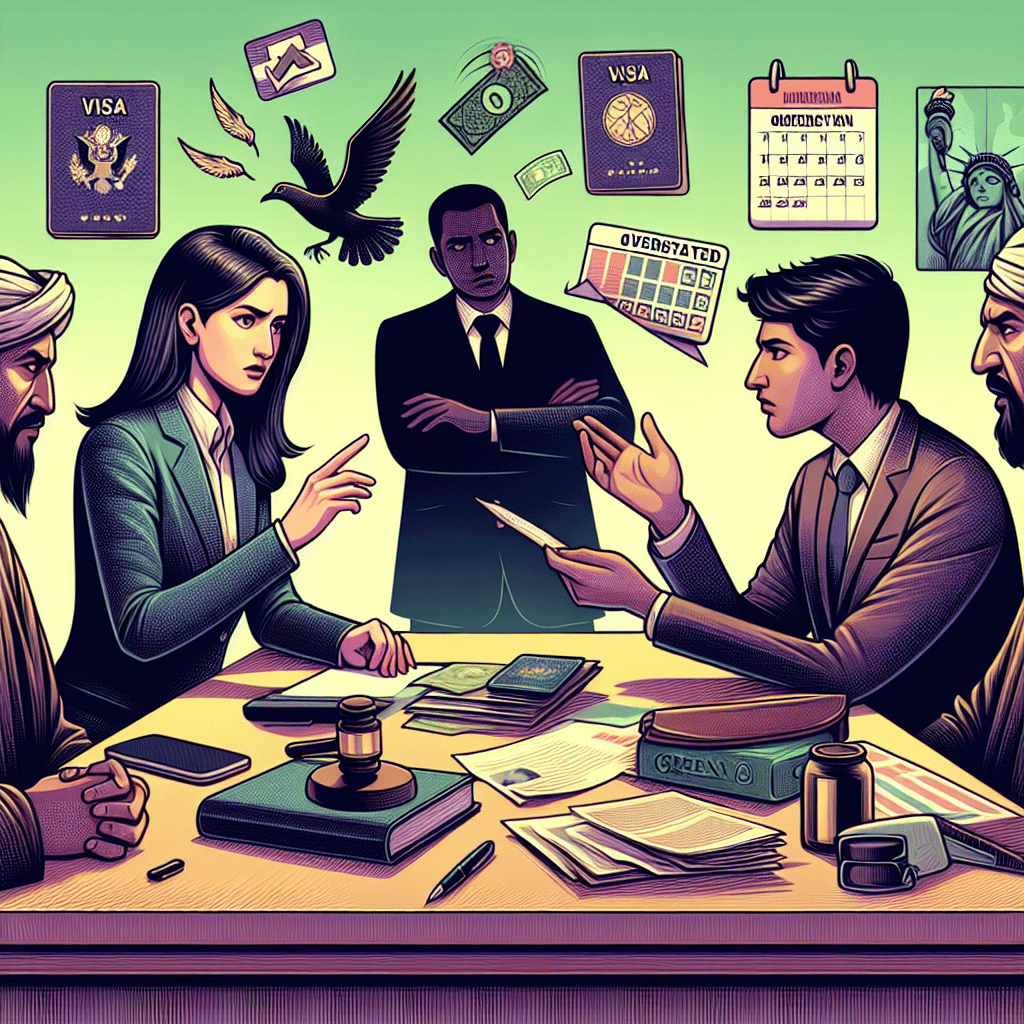Overstaying a visa can be a stressful situation, leaving many wondering about their future possibilities in the United States. If you’ve found yourself in this situation, you might be asking, “Can I still apply for a green card?” The answer isn’t a straightforward yes or no; it depends on several factors, including your personal circumstances and the category under which you might be eligible for a green card. Let’s explore these aspects in simpler terms to help you better understand your options.
Understanding Visa Overstay
First, let’s clarify what we mean by “overstaying a visa.” When you overstay, it means you have remained in the U.S. beyond the period authorized by your visa. It’s important to understand that this is not just a technical violation; it can have serious consequences, including being barred from re-entering the U.S. for a substantial period.
Pathways to a Green Card Despite Overstay
1. Immediate Relative of a U.S. Citizen: If you’re the spouse, unmarried child under 21, or parent of a U.S. citizen, there’s good news. The law is more forgiving to immediate relatives in terms of visa overstay. In most cases, you can still apply for a green card. This is because immediate relatives are not subject to bars on adjusting status from within the U.S., which means you don’t have to leave the country to apply, even if you’ve overstayed.
2. Family-Based Preferences: If you fall under one of the family-based preference categories (like siblings of U.S. citizens or adult children of U.S. citizens), your situation could be more complicated. Overstaying could render you ineligible to adjust status in the U.S. However, there may be waivers available depending on your case details, so consulting with an immigration attorney could give you a clearer path.
3. Employment-Based Visas: For those eligible for employment-based green cards, overstaying generally poses a significant hurdle. However, if you qualify under certain categories and can adjust status through the immediate relative option simultaneously, there’s a possibility to navigate this hurdle. Again, this requires strategic planning with legal assistance.
4. The “245(i)” Provision: This lesser-known avenue allows certain individuals who are otherwise ineligible to adjust their status due to an overstay to do so by paying a penalty fee. However, this only applies if you had an immigrant petition or labor certification filed on your behalf on or before April 30, 2001. It’s an older provision but worth mentioning in case it applies to your unique situation.
5. Asylum or Refugee Status: If your overstay was followed by being granted asylum or refugee status, you may still apply for a green card after a year of being in the U.S. in that status. The process here considers the humanitarian aspect and provides some leniency concerning past overstays.
Practical Tips
- Legal Consultation: Given the complexity of immigration laws and the potential for significant personal impact, one of your first steps should be consulting with an immigration attorney. They can offer personalized advice based on your circumstances.
- Honesty and Documentation: Gather all relevant documentation related to your entry and stay in the U.S. Honesty is crucial when discussing your situation with an attorney or immigration officials. Misrepresenting your status can lead to severe penalties, including permanent ineligibility for many types of immigration relief.
- Utilize Available Resources: Websites like the U.S. Citizenship and Immigration Services (USCIS) provide extensive resources and guidelines. While they might not be as user-friendly for a layperson, understanding the basics from these sites can be helpful when speaking with legal professionals.
Moving Forward
While overstaying a visa complicates your immigration journey, it doesn’t necessarily close all the doors. By understanding your options and taking informed steps, you can navigate your situation more confidently. Remember, while the process might seem daunting, there are pathways and people who can help guide you through it.








